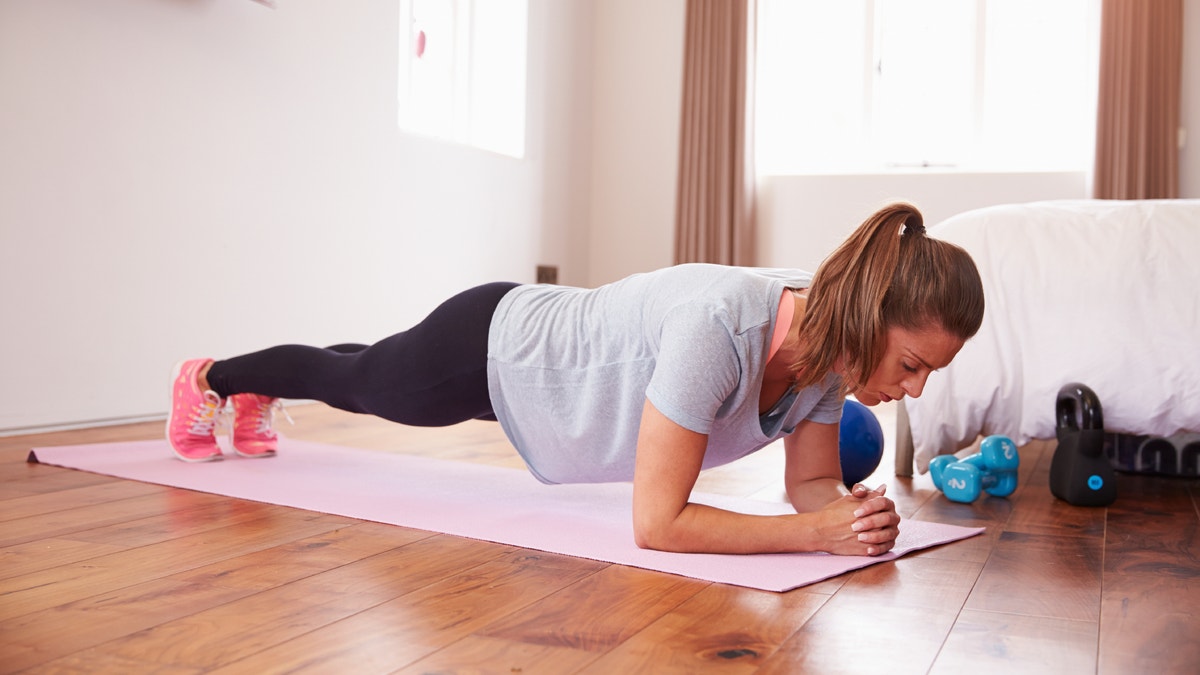
Woman Doing Fitness Exercises On Mat In Bedroom at home workout
For women under age 50, spending two and half hours of leisure time each week being active could cut heart disease risk by 25 percent, according to a U.S. study.
While that's been shown before for middle aged and older adults, less was known about whether exercise would make a measurable difference for younger women, the authors wrote in a July 26 online paper in Circulation.
"However, it is worth emphasizing that it doesn't matter if the exercise is moderate or vigorous, if you do it 6 days per week or 3 . . . every little bit counts," lead author Andrea Chomistek at the Indiana University School of Public Health in Bloomington told Reuters Health by email.
"Also, exercise lowers risk of heart disease whether you're normal weight, overweight, or obese," said Chomistek.
The researchers studied 97,000 women in the Nurses Health Study who were 27 to 44 years old in 1991. Every two years, the women filled out questionnaires about their leisure time physical activity.
By 2011, there had been 544 cases of coronary heart disease, including 254 among women under age 50. Regardless of body weight, women who reported doing moderate intensity activity such as brisk walking had lower risk of heart disease than those with little or no exercise.
Overall, women who spent a total of 2.5 hours per week being moderately active were about 25 percent less likely to be diagnosed with coronary heart disease than those who were not active at all.
Though apparent benefits were seen even in overweight and obese women, researchers found the greatest benefit among normal-weight women. Those who were active for 2.5 hours a week had half the heart disease risk of obese, inactive women.
"There are now many, many studies that have shown higher levels of physical activity to be linked with lower rates of heart disease, stroke, cancers, diabetes, and many other chronic health conditions," said Dr. Erin D. Michos of Johns Hopkins School of Medicine in Baltimore, who coauthored an editorial accompanying the new study.
But this observational study can't prove exercising causes a reduction in heart disease risk, Michos told Reuters Health by email.
"Women who are more active might be doing a whole-range of other health-promoting behaviors such as eating healthier diets, getting regular sleep, managing stress, and so forth," she said. "Which means to say greater active time might simply be just a marker of a better health state overall."
Frequency of activity didn't seem to matter as long as cumulative time per week reached a significant amount.
"Young women should engage in whatever form of exercise they enjoy and are most likely to stick with, whether it be moderate or vigorous activity," Chomistek said. "We also found that frequency did not matter once we controlled for total amount of exercise, which means that women can achieve the recommended 150 minutes per week of moderate exercise in as many or as few sessions as they wish or their schedules allow."
